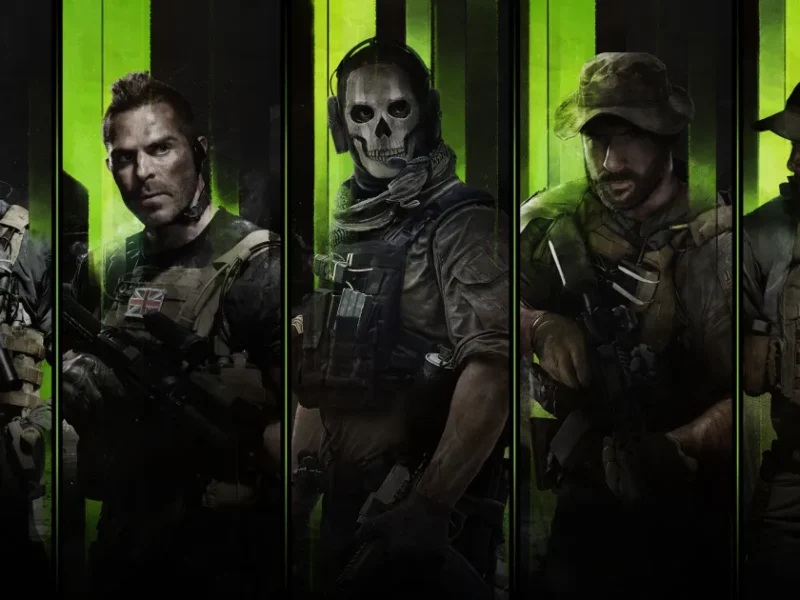Hashtags are more than just trendy phrases attached to posts—they are powerful tools that fuel the engine of social media, building engagement and connecting users globally. The Hashtag Game, however, takes this concept to another level. It introduces an element of excitement, transforming the simple use of hashtags into interactive, fun-filled challenges that capture attention, inspire creativity, and grow communities.
Hashtag games have become a favorite across various social platforms, from Twitter to Instagram and beyond. They allow users to engage with a brand or topic, share their thoughts, and build connections with others through specific themes. But how do these games work, and why are they so effective?
Let’s dive into the world of hashtag games, exploring what they are, how they are played, and why they hold such a firm place in the social media landscape.
What is a Hashtag Game?
A hashtag game is an interactive activity that invites users to participate by creating content around a specific hashtag. Brands, influencers, or even individual users initiate these games with the aim of driving conversation, building a sense of community, or simply offering light-hearted fun.
Participants play by posting content—such as tweets, images, or memes—using the designated hashtag. Often, the game involves a prompt or theme, such as sharing thoughts on a trending topic, contributing funny captions, or guessing the ending of a famous movie. The game’s format can vary depending on the platform, audience, or purpose, but at its core, it’s a way to engage users in a shared conversation.
Hashtag games range from daily challenges like #ThrowbackThursday to event-driven games like #OscarsSoWhite. These games make social media interactive and keep users coming back for more.
If you enjoy gaming communities and want more fun interactions, check out our articles on Game Vault 999 and Codes for Untitled Gym Game, which provide insights into trending games and exclusive game codes.
Why Are Hashtag Games So Effective?
One reason for their success lies in their simplicity. Hashtag games require minimal effort to participate—often just a single post—and tap into the playful, competitive side of users. More importantly, these games create emotional connections with participants, leading to increased brand loyalty and organic sharing.
Here are the top reasons why hashtag games work so well:
-
Boost Engagement:
- By encouraging users to post content, hashtag games increase interactions such as likes, comments, and shares. Participants are also more likely to interact with other users playing the same game, creating a ripple effect of engagement.
-
Amplify Reach:
- Hashtags categorize content, making it easier to discover. A well-crafted hashtag game can go viral, expanding your brand’s reach beyond your immediate audience.
-
Build Community:
- These games create a sense of belonging as users join in on shared experiences. A well-run hashtag game fosters camaraderie and strengthens community bonds.
-
Inspire Creativity:
- Hashtag games invite users to think outside the box, contributing their unique takes on a prompt. The more creative and funny the content, the more likely it is to be shared and celebrated.
-
Easy to Implement:
- Starting a hashtag game is as simple as announcing the hashtag and explaining the rules. It doesn’t require any complex tools, making it accessible for any brand or individual.
How to Create Your Own Hashtag Game
Creating a successful hashtag game requires planning, creativity, and understanding your audience. Whether you’re a brand looking to grow your social media presence or an influencer wanting to engage your followers, follow these steps to create a game that resonates.
1. Identify Your Objective
What do you hope to achieve with your hashtag game? Do you want to boost brand awareness, drive traffic to a specific page, or simply entertain your followers? Defining a clear objective will help shape the theme and format of your game.
2. Choose a Relevant Hashtag
The hashtag should be easy to remember, relevant to your objective, and simple to use. Avoid overly complex hashtags, as they can confuse participants or discourage participation.
3. Set Clear Rules
Make sure participants know how to play. Are they supposed to respond to a question, post a photo, or create a meme? Provide clear instructions to ensure everyone is on the same page.
4. Promote Your Game
Get the word out about your hashtag game by promoting it across all your social media channels. Consider partnering with influencers or engaging with early participants to gain traction.
5. Monitor and Engage
Once the game is live, actively engage with participants by liking, sharing, or commenting on their contributions. The more interaction you provide, the more likely users will continue participating.
6. Reward Creativity
Consider offering a reward or recognition for the most creative or popular contributions. Whether it’s a shout-out, a small prize, or a featured post, rewards add an extra layer of incentive for users to participate.
Popular Hashtag Games to Inspire You
Need some inspiration for your next hashtag game? Here are a few examples of games that have successfully engaged audiences and built community.
1. #ThrowbackThursday (#TBT)
One of the most popular hashtag games, #ThrowbackThursday invites users to share old photos or memories from the past. This game builds nostalgia and creates opportunities for users to reflect on positive moments.
2. #CaptionThis
In #CaptionThis, users are asked to come up with funny or creative captions for a specific image. It’s a fun way to get your audience involved and showcase their sense of humor.
3. #SixWordStory
This literary challenge encourages participants to tell a story in just six words. #SixWordStory games are popular on platforms like Twitter and allow for a wide range of creative interpretations.
4. #MoviePlotIn5Words
In this hashtag game, users summarize famous movie plots using only five words. It’s a simple, humorous way to engage movie buffs and challenge them to be concise and clever.
Maximizing the Impact of Your Hashtag Game
Running a hashtag game is easy, but making it successful requires strategy. Here’s how to maximize the impact of your game:
- Timing is Everything:
- Consider launching your hashtag game during peak activity times on social media, such as weekends or major holidays.
- Leverage Trends:
- Align your hashtag game with trending topics or events for increased visibility and relevance.
- Use Visuals:
- Enhance your hashtag game with eye-catching images, videos, or GIFs to attract attention and encourage participation.
- Encourage User-Generated Content:
- Hashtag games thrive on user-generated content. Encourage your followers to get involved by highlighting their contributions.
Frequently Asked Questions (FAQs)
Q: How can I ensure my # game doesn’t fizzle out?
A: Consistency is key. Engage with participants regularly, promote your game across channels, and keep the momentum going by recognizing contributions.
Q: Can I run a # game if I’m a small business or influencer?
A: Absolutely! # games are accessible to businesses and influencers of all sizes. Focus on creating fun, relatable content that resonates with your audience.
Q: What is the best platform for running a # game?
A: Twitter and Instagram are popular platforms for # games due to their hashtag-driven nature. However, you can tailor your game to other platforms like Facebook or TikTok based on where your audience is most active.
Conclusion
The Hashtag Game is a powerful way to build engagement, foster community, and inspire creativity across social media. Whether you’re a brand looking to grow your audience or an individual wanting to connect with like-minded users, #games offer endless opportunities for fun and interaction. So, why not start your own # game today and experience the excitement for yourself?



